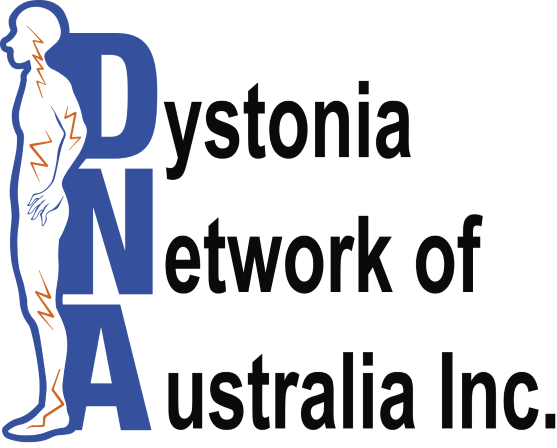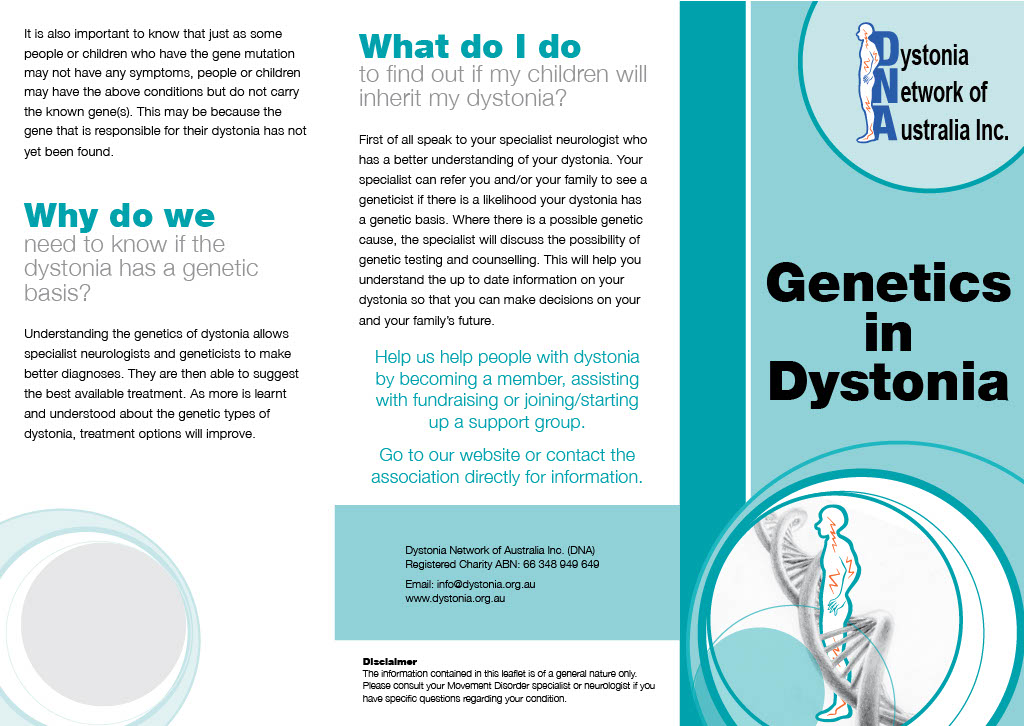Dystonia has many causes. It may be genetic as in certain early-onset generalised dystonias, dopa-responsive dystonia and myoclonus dystonia. It can also be acquired (where there is a known cause), from a brain injury as in hemidystonia or cerebral palsy, from certain medications that affect the brain or as a result of stroke or trauma.
At present, mutations in nearly 200 genes have been found in various forms of dystonia. However, it is important to understand that this represents only a small proportion of people with dystonia. Some of the best understood genes include: TOR1A which causes early-onset generalised dystonia in children and adolescents (DYT1), GCH1 which causes a form of dopa-responsive dystonia, and SGCE which causes myoclonus dystonia. There are many genes that have only been described in a handful of families.
It is also important to know that just as some people or children who have the gene mutation may not have any symptoms, people or children may have the above conditions but do not carry the known gene(s). This may be because the gene that is responsible for their dystonia has not yet been found.
More often the cause of dystonia is not known (this is called idiopathic dystonia). Where a cause is not found it is usually accepted that there is a problem with the way certain areas of the brain, such as the basal ganglia and the cerebellum, control movement.
Download Brochure
Not a member? Join today to assist us to continue to provide resources.
Page updated 31 January 2024




